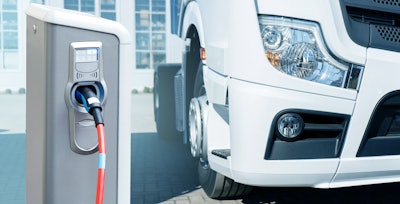
Twenty-three percent of respondents to a Fleet Advantage survey say they are either unaware of the CARB mandate or are still unsure about it. Despite most admitting they are running a longer life cycle with the need to replace trucks, 68% are aware that the CARB mandate will result in escalated truck pre-buy activity leading up to 2027.
“It’s imperative for fleets to understand the significant implications of the anticipated CARB mandate,” says Brian Antonellis, SVP of fleet operations for Fleet Advantage. “Educating fleets about the effects this will have on their procurement plans and their bottom line is important, but it is certainly not enough. Organizations must harness the power of data technology and analytics to establish a modernization plan that prioritizes a multi-year procurement approach. By maximizing total cost of ownership, we not only adapt to regulatory changes but also drive efficiency and sustainability forward, ensuring a smoother journey toward a greener tomorrow and more efficient operations”
Key takeaways:
- The CARB mandate is expected to result in the largest truck pre-buy ever leading up to 2027, beginning in 2025 into 2026, with the cost of diesel trucks increasing between $25,000-30,000 more per unit.
- When asked how many trucks in their fleet are model year 2019 or older, more than half (62%) said as many as 50 trucks in their fleet fall into this “higher aged” category. Aging inventory is certainly becoming an issue for these fleets, since this percentage was closer to 37% in last year’s benchmark study conducted in August.
- Even though the majority say they are running a five-year-or-more life cycle, 68% also admit they feel it is necessary to replace as much as 50% of their fleet over the next 2-3 years, which means they are now looking to shorten their life cycle. When asked what percent of their fleet they are actually planning to replace, approximately three-fourths of respondents said they actually plan to replace as much as half of their fleet over the next 2-3 years.
- While 36% said they have a CARB pre-buy procurement plan in place, nearly half (44%) said they either do not have a plan or are unsure if their organization has a plan.
- Fifty-seven percent of fleets said they plan to strategically procure trucks in a methodical manner, replacing aging vehicles to ensure they are constantly refreshing equipment without overpaying for all new trucks all at once. Nearly 20% of fleets said they will make no change to their replacement cycle, as they will procure trucks no matter the additional CARB pre-buy cost.
- Furthermore, when asked if they are concerned about the affect CARB may have on truck pricing, 23% of fleets said they will just keep the existing trucks they have for a little longer through the next few years.


















![Pros To Know 2026 [color]](https://img.sdcexec.com/mindful/acbm/workspaces/default/uploads/2025/08/prostoknow-2026-color.mduFvhpgMk.png?ar=16%3A9&auto=format%2Ccompress&bg=fff&fill-color=fff&fit=fill&h=135&q=70&w=240)